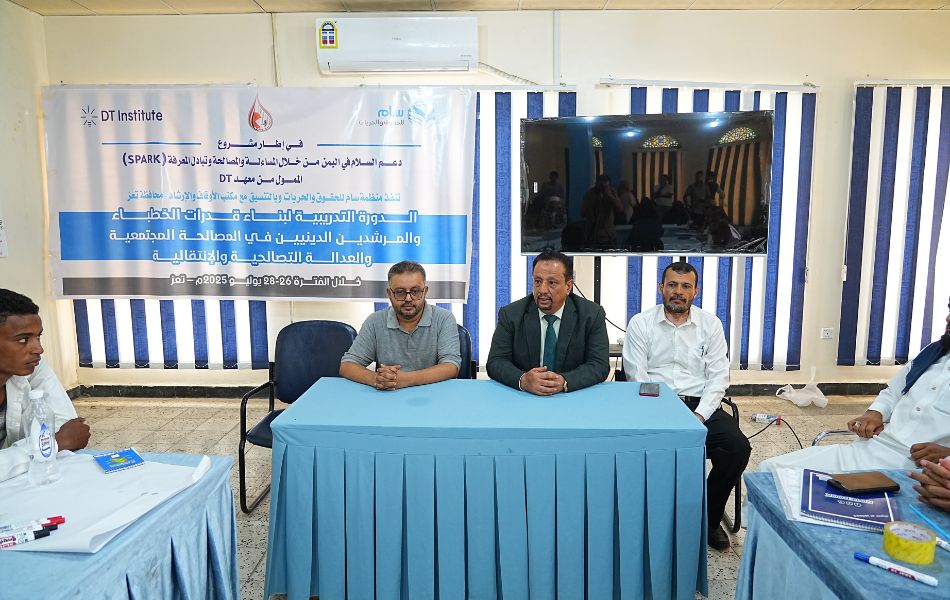
Taiz – 25 August 2025
Religious leaders and guides who participated in a recent training course in Taiz declared:
"We, the participants, affirm that this statement is not merely theoretical recommendations; it is a declaration of intent and a practical commitment to continue serving our communities, promoting a culture of justice and tolerance, and building bridges of cooperation with all parties working towards a safe, just, and inclusive Yemen."
This was stated in the concluding remarks of the training course “Transitional Justice and the Role of Religious Leaders in Supporting Community Reconciliation”, held in Taiz from 26 to 28 July 2025 as part of the SPARK project. The course was organized by SAM Organization for Rights and Freedoms, in partnership with the Mothers of the Disappeared Association, supported by the DTI Institute, and coordinated with the Office of Endowments and Guidance in Taiz Governorate.
Participants emphasized that years of conflict have caused profound suffering among Yemenis, and that religious discourse has the capacity to go beyond its traditional role in preaching and guidance, serving instead as a practical tool for reparations, recognition of victims’ rights, building trust, and promoting national reconciliation. They noted that the course provided a valuable opportunity to explore the principles of transitional and restorative justice, and to understand how religious discourse can directly contribute to reinforcing values of justice and tolerance.
The statement included several key recommendations, including:
Supporting community reconciliation initiatives based on justice and recognition of victims.
Empowering scholars and religious leaders to actively participate in peacebuilding efforts.
Ensuring places of worship remain neutral and free from political conflicts and incitement.
Strengthening the capacities of religious institutions and leaders through continuous training and development programs.
Expanding community awareness programs to promote a culture of tolerance and national reconciliation.
Participants also addressed specific messages to the Yemeni government and endowment offices to support scholars’ roles in reconciliation, to the United Nations and international organizations to involve religious leaders in peace programs, and to the UN envoy to allocate a dedicated track for their contributions. They called on all conflict parties to cease exploiting religion for incitement and conflict, and urged the local community to engage with moderate, peace-promoting discourse.
The participants concluded by affirming that the statement represents a collective commitment to continue their role in serving the community, highlighting that moderate religious discourse can be a fundamental pillar in overcoming the legacy of the past and moving toward a more stable and just future.